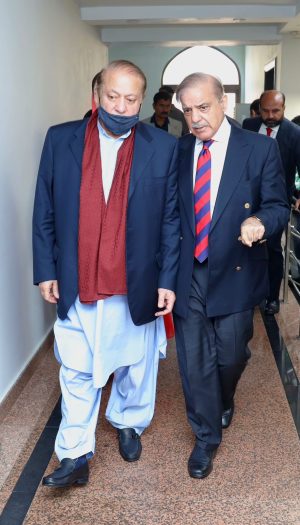As Pakistan approaches its next general elections, with voting scheduled for February 8, 2024, the political landscape is buzzing with activity and intrigue. There is a sense of anticipation and uncertainty surrounding the fate of the country’s economy and political stability.
Political maneuvering has taken center stage as parties explore alliances and strategize their campaigns. Each party accuses the other of seeking to maximize electoral gains at the expense of opponents by receiving support from the caretaker government. This has added fuel to the already heated political environment.
For instance, the upcoming board meeting of the International Monetary Fund (IMF) has sparked speculation among Pakistani analysts. The IMF needs to approve Pakistan’s second review of the current nine-month Stand-By Arrangement (SBA), but Pakistan has not been added to the board’s schedule even after the successful completion of the staff-level agreement last month. Many in Pakistan suspect this means Pakistan’s case will strategically be placed on the IMF’s agenda closer to the elections to gauge the commitment of Pakistani authorities toward holding fair and transparent elections.
Nevertheless, it is imperative to note that the Election Commission of Pakistan (ECP) has announced that elections will take place as scheduled, and impartially and transparently. It has also assured that they are ahead of their timeline in completing various activities related to the delimitation of constituencies and posting of staff.
This assurance from the ECP reinforces the notion that any decisions made by international organizations like the IMF should not be influenced by election timelines but rather focus on economic stability and development in Pakistan.
In the coming days, former Prime Minister Imran Khan’s Pakistan Tehreek-e-Insaf (PTI) is likely to face several challenges that could have a significant impact on its political standing. The ECP is expected to oppose the PTI’s intra-party polls, potentially leading to stripping it of its electoral symbol. As a result, PTI will need to run its campaign under a new symbol, which may affect the party’s support among voters.
In contrast, other mainstream political parties like Pakistan Muslim League-Nawaz (PML-N) and Pakistan People’s Party (PPP) are actively working toward forming alliances to secure a position where they have a chance to form the government at the center.
The battle for Punjab, in particular, will be crucial in determining the final outcome. In this regard, the political landscape is currently witnessing a tense dynamic between the PPP and PML-N. With the PPP primarily concentrated in Sindh and facing challenges in forming crucial alliances with influential politicians in Punjab, the party is growing increasingly frustrated. This frustration has led to the PPP actively targeting the PML-N and accusing it of allegedly receiving support from the military establishment to revive its electoral fate in Punjab and elsewhere.
While the PPP remains concerned about countering electoral threats in urban Sindh, it is anticipated that parties such as the Islami Tehreek Pakistan (IPP) and PML-N will capitalize on the vulnerabilities of both the PTI and PPP in Punjab. This presents an opportunity for these parties to gain an advantage and potentially reshape the political scenario.
The political landscape in Pakistan has always been marked by its unpredictability, leaving many citizens and observers questioning the stability of the upcoming elections. In this regard, the threat posed by militant groups like the Tehreek-e-Taliban Pakistan (TTP) remains a cause of concern. Political parties such as the PML-N, PPP, Awami National Party (ANP), and Jamiat Uleme-e-Islam-Fazal (JUI-F) are likely targets for militant groups.
In addition, the confrontational politics of the PTI has further fueled concerns about the smooth conduct of the polls. Khan’s inability to work collaboratively with his political opponents and his ongoing feud with state institutions have raised eyebrows among both supporters and critics. This confrontational approach not only hinders effective governance but also poses a potential obstacle to his party’s preparations for the upcoming elections.
As Pakistan navigates through this uncertain political landscape, it is crucial for all stakeholders involved to prioritize dialogue, cooperation, and respect for democratic processes. The stakes are high, and the outcome of these elections will have far-reaching implications for both the nation’s economy and its overall political landscape.

































